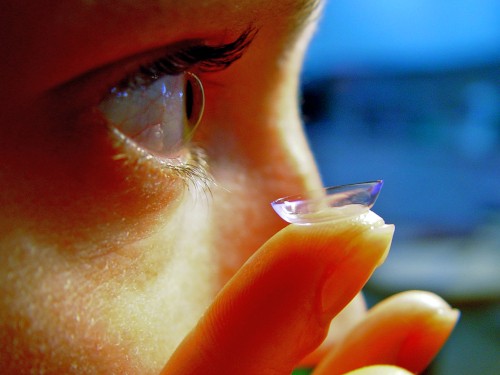Industry News
New Study Reveals Potential Presence of Harmful PFAS in Contact Lenses
 A groundbreaking study conducted by leading environmental health organization, Mamavation, has shed light on a previously unknown health risk associated with contact lenses. The study, which focused on the presence of per- and polyfluoroalkyl substances (PFAS) in contact lenses, has raised significant concerns within the medical community.
A groundbreaking study conducted by leading environmental health organization, Mamavation, has shed light on a previously unknown health risk associated with contact lenses. The study, which focused on the presence of per- and polyfluoroalkyl substances (PFAS) in contact lenses, has raised significant concerns within the medical community.
PFAS are a group of synthetic chemicals widely used in various consumer products due to their water and oil-resistant properties. However, they have been linked to numerous health issues, including cancer, hormone disruption, and immune system disorders. Until now, PFAS exposure has primarily been associated with contaminated drinking water, food packaging, and certain household products.
Mamavation's research team, in collaboration with renowned scientists, conducted an in-depth analysis of popular contact lens brands to investigate the presence of PFAS. Shockingly, the study revealed detectable levels of PFAS in a significant number of tested contact lenses, suggesting potential exposure to these harmful chemicals through direct eye contact.
The findings have prompted concerns about the long-term impact of PFAS exposure on ocular health and overall well-being. Contact lens wearers, who number in the millions globally, may be unknowingly putting themselves at risk.
"As an organization dedicated to empowering individuals to make healthier choices, we felt compelled to delve into the potential risks associated with everyday products," said Leah Segedie, CEO and founder of Mamavation. "The discovery of PFAS in contact lenses is alarming, as it exposes a vulnerable part of our bodies to these harmful chemicals."
Experts emphasize the urgent need for further research to determine the extent of PFAS contamination in contact lenses, as well as potential health consequences for users. In the meantime, they advise contact lens wearers to exercise caution and consider alternative options, such as glasses or PFAS-free lenses.
Mamavation calls on regulatory bodies, contact lens manufacturers, and the medical community to prioritize this issue and take necessary steps to protect public health. Increased transparency, rigorous testing, and stricter regulations regarding the presence of PFAS in contact lenses are essential for safeguarding consumers.



